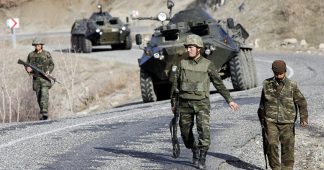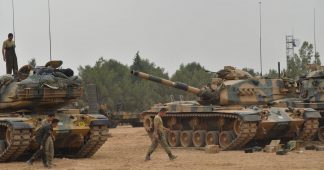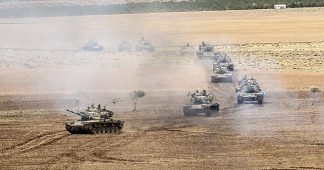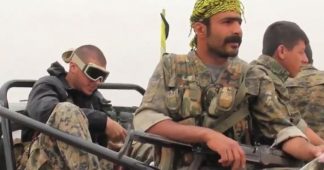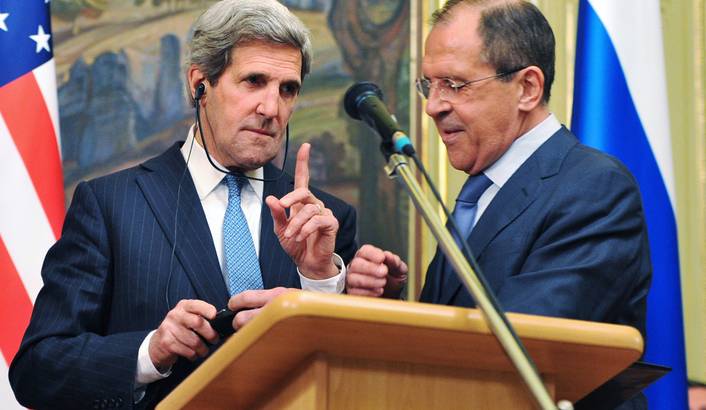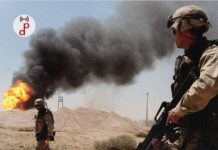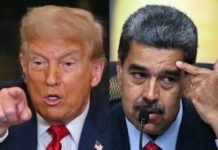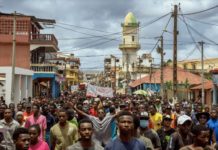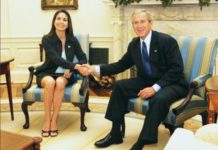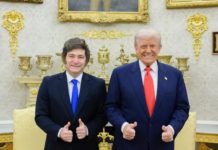On September 7th, the Turkish president Erdogan made an important statement on the results of talks with the US President Barack Obama at the G20 summit in China. According to him, Ankara is ready to accept Washington’s proposal for a joint operation to repel militants of the Islamic State from Raqqa . This statement implies a fundamentally new balance of power in the north of Syria, which poses a real threat to Russia’s plans in Aleppo, and to the political image of Moscow and to the success of the negotiations in Geneva.
Now, Turkish troops and their allies of the Free Syrian Army began an operation in northern Syria to control about 800 km2 from Jarabulus to Azaz cities. Despite Ankara’s statement on the fight not only against the ISIS, but also against the Syrian Kurds, since September 1st there was no fighting with the Syrian Democratic Forces. Kurds still have positions near Manbizh and are not going to retreat past the Euphrates. However, in late August, Turkey began the construction of a concrete wall along the border with Syria, controlled by Kurds. In our opinion, this event shows the impossibility of carrying out an operation against the Syrian Kurds and the possibility of the conflict’s escalation in the near future.
The Turkish offensive in the Jarabulus area are led troops of the Kurdish Democratic Forces of Syria who transfered from the south (from Ayn Issa), where they were preparing for an attack on Raqqa, over to the north, under US command. The representatives of the Kurdish leadership have already stated that the Turkish invasion was fatal for the operation.
Apparently, such an experienced politician like Erdogan managed to intimidate the Americans with the thought of the possibility of rapprochement with Moscow and Tehran and withdrawal from NATO. Currently, Washington is anxious over the idea of losing a strategic ally, and decided to make significant concessions with Ankara on both the Kurdish issue (reduction of financial and military aid to Syrian Kurds, in order not to have conflict with the Turkish troops), and for Turkey’s domestic issues (US extradition of Gülen, who is accused of organizing the military coup on July 15). Erdogan’s statement shows that Turkey and the US reached a strategic agreement on a joint attack on Raqqa in the near future.
For Turkey, there is a real opportunity to achieve strategic success in fighting against ISIS, which will be used by Erdogan to raise his polls in the country. In future negotiations in Geneva, Ankara hopes to build on this progress to influence the political situation in the country. Its allies are Saudi Arabia and Qatar; thus they recede into the background in leading the anti-Assad opposition.
For the US, Raqqa’s seizure by Turkey is a great opportunity for waging war by proxy. Seizing the main stronghold of ISIS terrorists is the perfect gift for Hillary Clinton and will increase support for the Democratic Party in the elections. In addition, the success of the international anti-terrorist coalition should upstage primarily Russia, that its ability to fight with ISIS is limited. Perhaps, the lack of any success in negotiations with Russia on Aleppo, and on Syria in general, and the increase of anti-Russian sanctions are linked to the agreements with Turkey in this operation.
For Russia, these events are unacceptable. During the offensive, the Turks and their allies from the Free Syrian Army and other Islamist organizations in the Raqqa area need to attack ISIS’s strategic town near Aleppo, Al-Bab. In the event of a successful operation, the troops will make direct contact with the forces of the Syrian Arab Army, surrounding Aleppo from the east in the Tel Shair. The existing Syrian army front at its narrowest point is only 3 km, thus this part can be broken in a very short time with the proper support of insurgents from eastern Aleppo.
From contact with representatives of the armed opposition in Aleppo, Al-Shami, it is reported that there are significant stocks of weapons, ammunition and food, and high morale and expectation of an imminent sally from their Turkish friends, freeing them from the blockade. According to information from sources in eastern Aleppo, the rebels gave up trying to break through the road in front of the Castello district and the quarter of Ramus, trying to reserve its power for new operations.
The participation of a number of the Turkish troops with military vehicles makes it extremely problematic to carry out airstrikes by the Russian Air Forces. The Turkish side will clearly state that they will not participate in the breaking the blockade, however, they can not prohibit vanguard forces of the armed opposition fighting against Damascus from doing it.
In the event of a breaking of the blockade of Aleppo, all Russian plans for a political settlement in the city will fail. The western sections of the city will be surrounded; the only way out will be the recently seized narrow land in Ramus. It is extremely problematic to carry out resupplying, as all buildings are destroyed, and the roads are under fire by fighters from both sides. Surely, after that, the Turkish-American side will present a plan for a political settlement in the city, which in general will copy the Russian plan, only the loser would be the Syrian side. In this case, the rest of the northern part of Syria with the exception of the Kurdish-controlled areas would go under the political influence of Ankara and Washington.
The Turkish offence at the El-Bab and the breaking of the Aleppo blockade uniquely affect the status of relations between Moscow and Ankara. Perhaps, they may return to a “cold war” and the cessation of all strategic projects. For Washington, it will be a great political achievement.
The seizure of Raqqa by Turkish troops and the armed Syrian opposition, supported by US aircraft will consolidate the status of the US as the main fighter against international terrorism and put Russia in a difficult position. The dissolution of Syria would be an obvious outcome. The members of the armed opposition and their allies will see a dramatic increase their influence at the negotiations on a political settlement in Geneva after their clear military successes.
